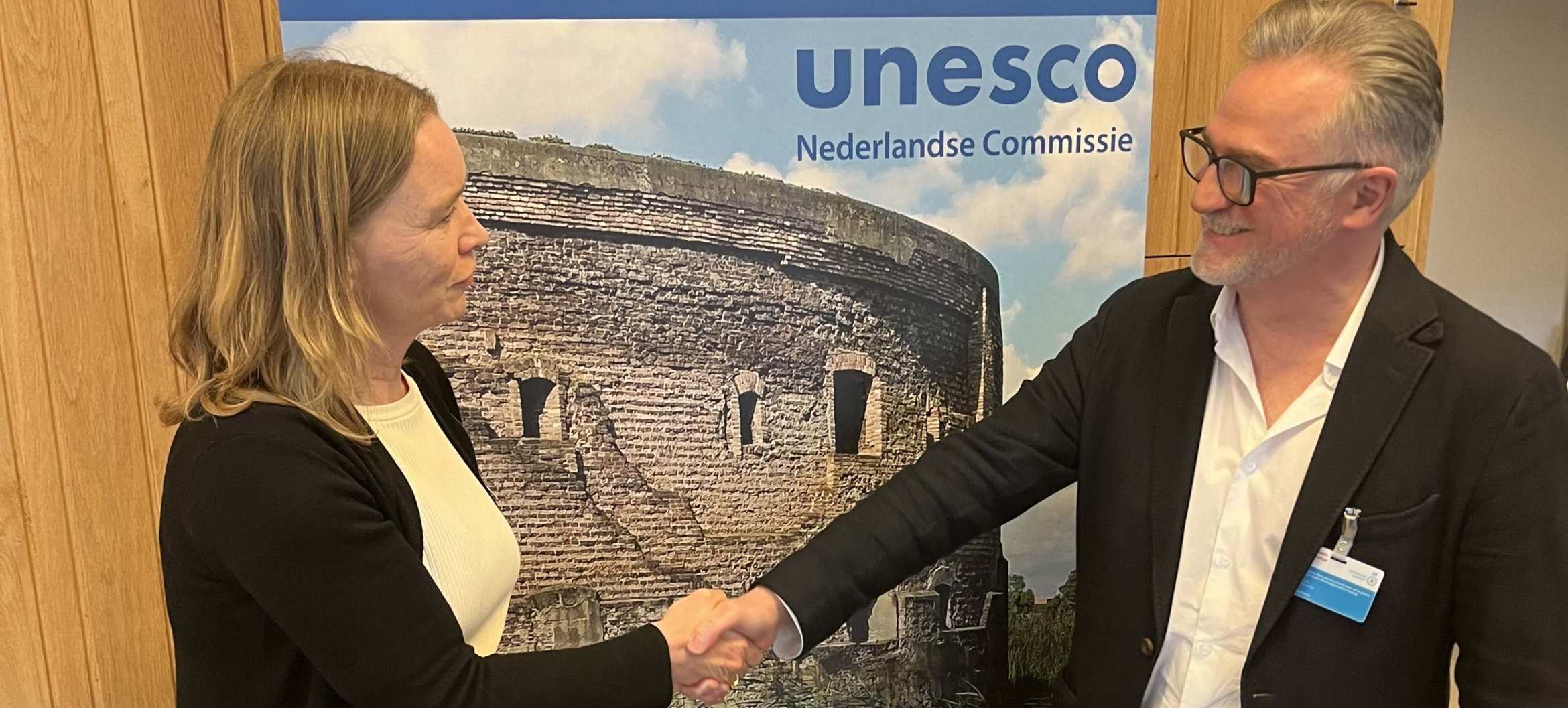Dr John Johnston appointed as UNESCO Chair for Issues Based Arts Education at ArtEZ
- Education in Art
- ArtEZ Prizewinner
Dr John Johnston, head of the international Master Artist Educator (iMAE) at ArtEZ, has been appointed as the UNESCO Chair for Issues Based Arts Education, Intercultural Dialogue and Social Cohesion at ArtEZ. With this appointment, ArtEZ becomes the first university of the arts in the Netherlands with a UNESCO Chair, marking a significant milestone that underscores the importance of arts education in global, contemporary issues.

UNESCO Chair and UNITWIN
The UNESCO Chair program is a scientific initiative of UNESCO, established in 1992. Its aim is to promote international cooperation among researchers through the collaboration of UNESCO Chairs and networks of universities (UNITWIN). The Chairs are part of a global knowledge network and encourage research and education on topics relevant to UNESCO.
UNESCO's recent framework emphasizes the importance of integrating culture and arts education to address various societal challenges such as inequality, polarization, migration, and climate change. Moreover, arts education provides opportunities for learners to empower themselves socially and economically. The UNESCO Chair held by John Johnston at ArtEZ is aiming at precisely those values and vision, by taking arts education into schools and communities and addressing the issues that matter to the people we work with.
Marjolijn Brussaard, President of the Executive Board at ArtEZ, is proud of this appointment. Brussaard states:"ArtEZ is the largest provider of teacher training for artisteducators in the Netherlands. Being granted the UNESCO chair positions us uniquely to extend the impact of art education on societal development and take a leading role in this endeavor. John has done an outstanding job of bringing issues such as identity, intercultural dialogue, and conflict transformation to the forefront for future art educators. We take pride in supporting this chair to make an impact and innovate the profession."

Issues Based Arts Education: It's about people, places, times
During the four-year research period of the UNESCO Mandate, Johnston will construct a research team comprised of staff and others including artists, academics, educators, and cultural workers. Together with this team, Johnston will explore how 'Issues Based Arts Education' can be used as a tool to promote social cohesion and intercultural dialogue. Issues Based Arts Education, abbreviated as IBAE, is an adaptable teaching approach that emphasizes pressing themes relevant to people, their circumstances, and the present moment. Ultimately, IBAE places the issue itself at the heart of a creative exploration, enriching both individual and collective awareness.
These three words - 'people, places, times' - hold particular significance for Johnston. “These three words essentially encapsulate what the UNESCO Chair is about for me, namely that I want to prove that Issues Based Art Education is a pedagogy that allows us to educate people and communities in a way that is tailored to the times we live in, the place where it is delivered, and the people involved,” Johnston explains.
What does it mean to be human? And what does it mean to be in this specific place, at this specific time? Issues Based Art Education is for me a way to make education more about that: about people, places and the times we live in.”
This chair, to me, is a recognition of the impact of art education, and it puts ArtEZ on the map as the leading educational and research institution in the field of art education.”
Dr John Johnston
Site-Specific Colleges and IBAE
Throughout his career at ArtEZ, Johnston has worked extensively with IBAE, particularly within the context of the international Master Artist Educator (iMAE) course. In this master's course, IBAE plays a central role. IMAE students not only learn how to work with IBAE but also have the opportunity to utilize it in communities outside of ArtEZ and the classroom, both nationally and internationally. One of Johnston's notable concepts is the idea of 'Site-Specific Colleges,' where students engage directly with communities on location, employing IBAE principles. While initially implemented in iMAE, this concept has since been expanded to the bachelor's course in Artisteducator in Theatre and Media.
More information?
For more information about the UNESCO Chair, such as the partners with whom Johnston will collaborate from the Chair, visit this page or click on the black button below. The page is still being updated, so check it regularly to stay informed and not miss any updates.